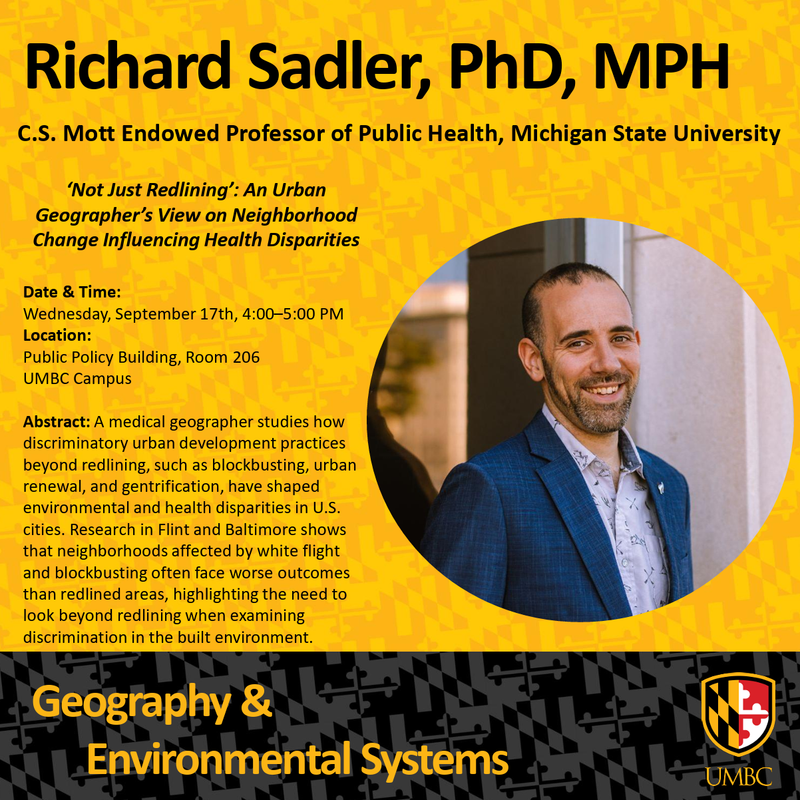'Not Just Redlining': An Urban Geographer's View on Neighborhood Change Influencing Health Disparities
GES Seminar ft. Dr. Richard Sadler-Michigan State University
Location
Public Policy : 206
Date & Time
September 17, 2025, 4:00 pm – 5:00 pm
Description
Abstract: Public health researchers have become captivated with the idea of the long-outlawed practice of redlining influencing contemporary environmental and health disparities (mainly owing to the presence of a publicly available, geocoded dataset on the topic). But over the last 50+ years, a variety of discriminatory urban development practices have also marked our landscapes in ways that drive disparities. The deeper understanding of urban development known to geographers affords a meaningful consideration of these additional practices (which can include restrictive covenants, blockbusting, urban renewal, slum clearance, freeway construction, and gentrification). Much of my research as a medical geographer revolves around thinking about the patterns of disinvestment and decline experienced in American cities, especially via these processes. Doing so helps deepen our understanding of how environmental exposures are driven by a range of land use and planning decisions not just at one point in time, but over the course of many decades. In this talk, I will elaborate on this background and present research findings from earlier work in Flint and Baltimore. A major recurring finding in this work is that areas marked by high rates of white flight and blockbusting often fare even worse than formerly redlined neighborhoods, work which suggests a critical need to move beyond redlining in assessing the role of discrimination in the built environment.
